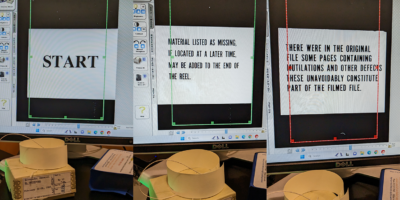By Ria Banerjee
“Universal design” has become a catchphrase at our college in recent months, brought about in part by the increased recognition of neurodiverse students in our campus community. As I’ve learnt, UD is more than the latest buzzword; it’s a way of approaching the assignment so that it is accessible to students at different skill levels at the same time.
I’ll admit my default mode is that of a skeptic, which is why I love the UD strategy I stumbled upon: to add a “Do More” section to relevant assignments. I initially came up with it because I had more material for a course than would fit on the syllabus. Now, more experienced colleagues tell me it’s also good practice.
Say, for instance, I’ve asked students in developmental writing to write a review of the documentary Blackfish. The assignment worksheet looks like this. The appended “Do More” section (included on my ePortfolio site) encourages more enthusiastic writers to modify the assignment; here, they can watch a second, related documentary like Grizzly Man or Tyke, Elephant Outlaw and write a comparative review of both films. In discussions, I clarify that writing the single review well can potentially earn an A. Many of my students fixate on grades and this reassures those who are struggling with coursework. By the same token, I continue, “doing more” doesn’t guarantee an excellent grade if the (modified) assignment is poorly executed.
I’ve found this strategy a mixed bag in practice. I like its simplicity—it’s a line or two extra on an assignment sheet—and its adaptability, which lets me tweak it from class to class without much additional planning. So far, I’ve had little interest from students in my developmental writing classes, who are sometimes overwhelmed by their first experience of college. This term, I’m trying the same technique in a 200-level course , and have had 2-3 students consistently choosing the “extra work” option.
Ultimately, I continue to expose students to the idea that assignments can be modified by them to be more challenging and interesting. I hope this invitation to take control of one assignment, for one course, translates into more intentional academic choices overall.
Ria Banerjee is Assistant Professor of English at Guttman Community College and a graduate of the Graduate Center’s English program. She regularly teaches developmental writing and second-year literature courses.









Leave a Reply